What If Lord Kalki Is Already Among Us, But We’re Too Blind to See?
Noopur Kumari | May 20, 2025, 12:00 IST
Kalki
( Image credit : Freepik )
What if Lord Kalki isn’t a warrior on a white horse, but a mirror to your soul? What if the final Avatar of Vishnu is not just a prophecy, but a personal awakening waiting inside you? This article uncovers the hidden lessons of Kalki through the Bhagavad Gita, revealing how your inner battles, heartbreaks, and choices may already be calling the divine. Are you ready to face what Kalki truly means for you?
When life feels like it's falling apart, when lies reign over truth, and when even goodness begins to doubt itself, something deep inside us longs for divine intervention. That’s when we turn to the stories of Lord Vishnu’s avatars—not just as mythological tales, but as symbols of hope. From Matsya to Krishna, every avatar descended during chaos… and Kalki, the final one, is yet to come. But why? What does his arrival mean for us? And more importantly, what do these avatars, especially Kalki, teach us about our own struggles, choices, and the inner battles we face every day? The Bhagavad Gita isn’t just a spiritual guide—it’s a manual for surviving this age of confusion. Let’s dive into the emotional and spiritual journey of Lord Kalki and find out what it truly means to awaken the divine within.
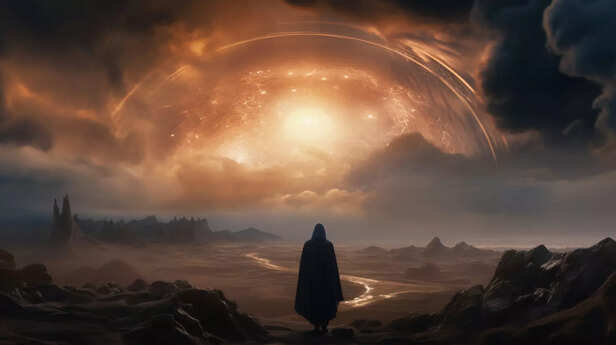
We frequently ask ourselves, "Why doesn't God step in when things get worse?" However, all of the Vishnu avatars follow that pattern. "Whenever there is a decrease in righteousness and an increase in unrighteousness, I appear," declares Krishna in the Gita. That promise is Kalki. Kalki's presence is unavoidable in the world of today, where brutality masquerades as charm and truth is struggling to survive. This is more than simply a prophecy; it serves as a reminder that divine justice never forgets, no matter how dire things get. There is always chaos. It is an exhortation to awaken.
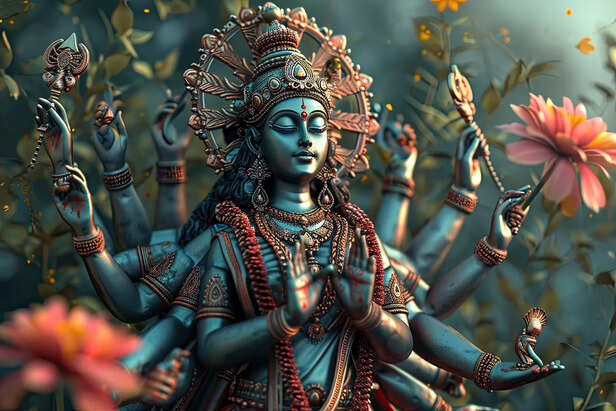
We all picture Kalki as a warrior who will use a sword to vanquish evil. However, the Gita informs us that the true conflict is within, not outside. The white horse is a symbol of innocence. Truth is represented by the sword. What about the battlefield? It's your own thoughts, balancing ego and humility, greed and compassion, selfishness and sacrifice. The tale of Kalki is a metaphor. We must first defeat the demons within ourselves; he is not only coming to hunt down demons. When you stand up for the voiceless and choose honesty above comfort, you join Kalki's army.
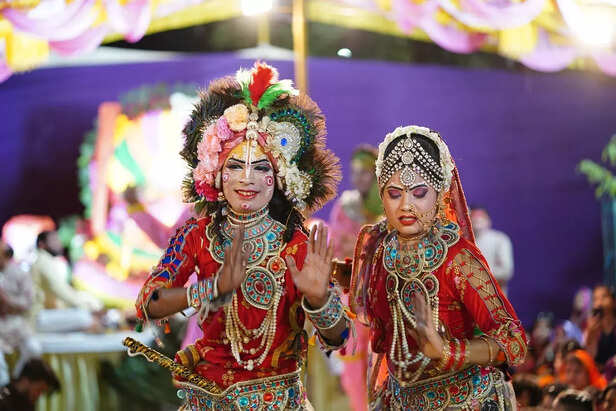
Instead of appearing in opulent mansions, Vishnu's avatars took the form of fishes, boars, dwarfs, or lowly princes. Why? Because the most profound lessons in life sometimes take unexpected shapes. You were strengthened by that heartbreak. Your faith was awakened by that setback. Your life was changed by that stranger. The divine frequently enters our lives barefoot, even though Kalki may arrive on a horse. Are you observing? Or have you grown so engrossed in the mayhem that you are unable to notice the wonders taking place in silence?
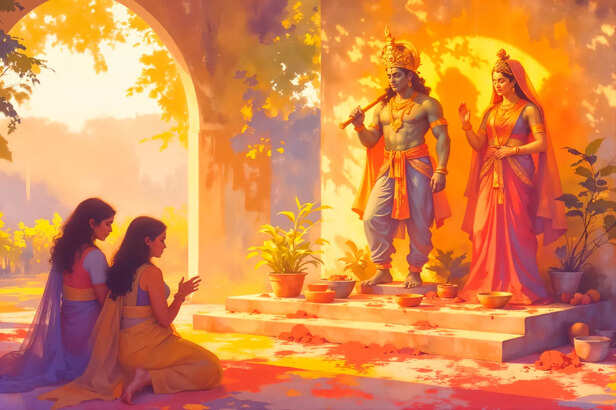
Each avatar of Vishnu symbolizes a lesson. Matsya preserved information. Kurma was in favor of the truth being churned. In response to injustice, Narasimha displayed divine wrath. Krishna imparted lessons in detachment and love. Kalki? He stands for metamorphosis—the ultimate shedding of deception. Consider this: in our own lives, don't we alternate between these avatars all the time? Prior to being compelled to change, we must first study, then support, struggle, love, and surrender. Even destruction is sacred, according to Kalki, because it makes room for rebirth.
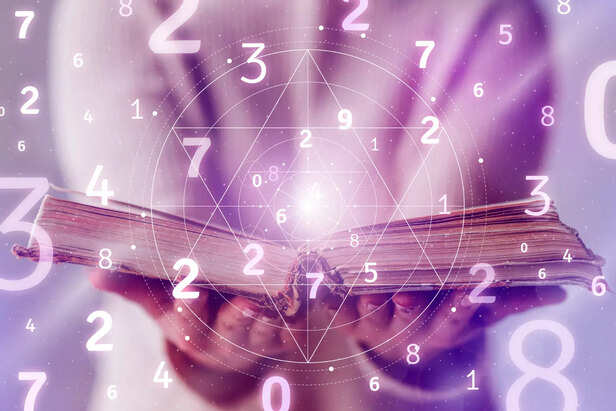
Many people worry why Kalki hasn't arrived if he is destined. It's a painful but honest answer. Free will is taught in the Gita. Only when we give up will God step in. It is faith, not absence, that is causing Kalki's delay. Have faith that we can ascend. Have faith that Krishna's wisdom is still alive and well among us. that Arjuna's bravery endures. Kalki waits. Perhaps, just possibly, we still have the ability to mend what's broken before the sword must fall—not because he's late.
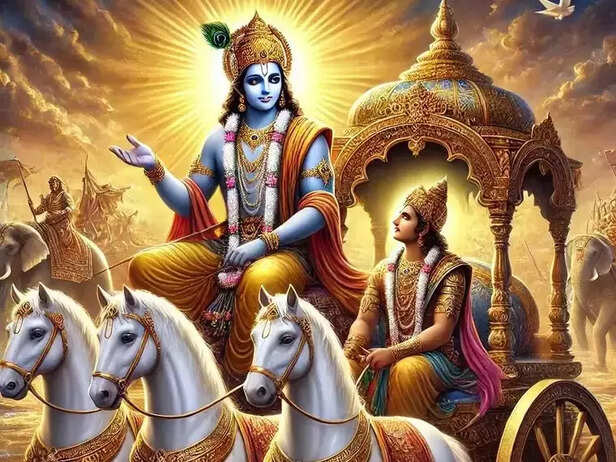
War was never the exclusive topic of the Bhagavad Gita. The inner compass we disregard is called dharma. Kalki is more than just an end-times prophecy. He is a representation. A mirror. The part of you that rises every time you say no to injustice. You call forth the Kalki within each time you choose compassion over cruelty, truth over comfort. "You don't have to wait for the avatar—be the reason he never has to come," the Gita says.
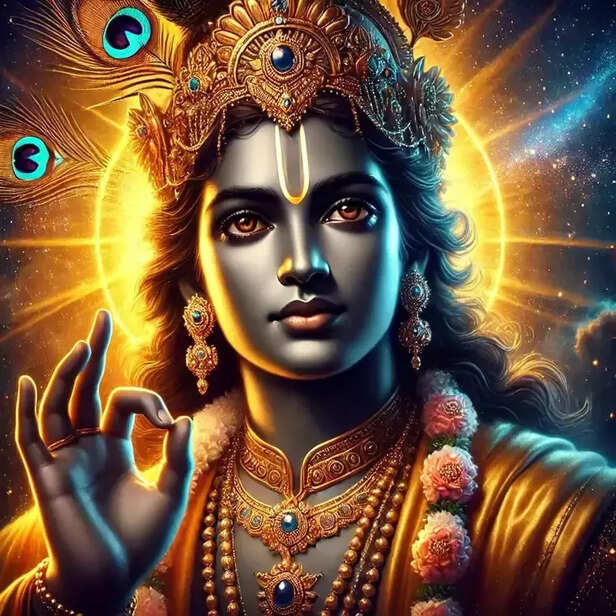
At the end of the Kali Yuga, Kalki will make an appearance; yet, perhaps that "end" is more about attitude than time. Perhaps the numbness is coming to an end. Fake grins are over. The end of standing there and watching the world burn. The soul rises when everything else collapses. You discover your greatest strength at that point. It is at that moment when Kalki stands beside you, not as a god but as the hope in your quiet, the courage in your tears, and the fire in your heart.
Every Vishnu avatar—from the fish that swam through floods, to the prince who lifted a mountain—was not just a divine act. It was a lesson in resilience, compassion, and faith. And Kalki, the final avatar, may not just come from heaven. He may rise in the choices we make, the love we protect, and the truths we refuse to abandon. The Gita was not written for saints. It was whispered to a broken warrior, standing at the edge of war. Just like you. Just like now
When darkness grows and silence cries,
A warrior of truth will surely rise.
Not just in skies or holy lore,
But in your heart, forevermore.
Be the voice when all are still—
Be the Kalki, if you will."
Explore the latest trends and tips in Health & Fitness, Travel, Life Hacks, Fashion & Beauty, and Relationships at Times Life!
1. When Chaos Becomes the New Normal, God Prepares to Return

dark world
( Image credit : Freepik )
We frequently ask ourselves, "Why doesn't God step in when things get worse?" However, all of the Vishnu avatars follow that pattern. "Whenever there is a decrease in righteousness and an increase in unrighteousness, I appear," declares Krishna in the Gita. That promise is Kalki. Kalki's presence is unavoidable in the world of today, where brutality masquerades as charm and truth is struggling to survive. This is more than simply a prophecy; it serves as a reminder that divine justice never forgets, no matter how dire things get. There is always chaos. It is an exhortation to awaken.
2. Kalki Rides a White Horse, But the Battle Begins Inside You

Kalki as a warrior
( Image credit : Freepik )
We all picture Kalki as a warrior who will use a sword to vanquish evil. However, the Gita informs us that the true conflict is within, not outside. The white horse is a symbol of innocence. Truth is represented by the sword. What about the battlefield? It's your own thoughts, balancing ego and humility, greed and compassion, selfishness and sacrifice. The tale of Kalki is a metaphor. We must first defeat the demons within ourselves; he is not only coming to hunt down demons. When you stand up for the voiceless and choose honesty above comfort, you join Kalki's army.
3. Every Avatar Arrives in Disguise—So Does Strength in Your Life

Vishnu's avatars
( Image credit : Pexels )
Instead of appearing in opulent mansions, Vishnu's avatars took the form of fishes, boars, dwarfs, or lowly princes. Why? Because the most profound lessons in life sometimes take unexpected shapes. You were strengthened by that heartbreak. Your faith was awakened by that setback. Your life was changed by that stranger. The divine frequently enters our lives barefoot, even though Kalki may arrive on a horse. Are you observing? Or have you grown so engrossed in the mayhem that you are unable to notice the wonders taking place in silence?
4. From Matsya to Kalki: Each Avatar Teaches a Stage of Life

Vishnu
( Image credit : Pexels )
Each avatar of Vishnu symbolizes a lesson. Matsya preserved information. Kurma was in favor of the truth being churned. In response to injustice, Narasimha displayed divine wrath. Krishna imparted lessons in detachment and love. Kalki? He stands for metamorphosis—the ultimate shedding of deception. Consider this: in our own lives, don't we alternate between these avatars all the time? Prior to being compelled to change, we must first study, then support, struggle, love, and surrender. Even destruction is sacred, according to Kalki, because it makes room for rebirth.
5. Why the Avatar Hasn’t Come Yet—And Why That’s On Us

clock with divine
( Image credit : Freepik )
Many people worry why Kalki hasn't arrived if he is destined. It's a painful but honest answer. Free will is taught in the Gita. Only when we give up will God step in. It is faith, not absence, that is causing Kalki's delay. Have faith that we can ascend. Have faith that Krishna's wisdom is still alive and well among us. that Arjuna's bravery endures. Kalki waits. Perhaps, just possibly, we still have the ability to mend what's broken before the sword must fall—not because he's late.
6. The Gita’s Secret: Kalki Is Not Just a Future Avatar—He’s a Choice You Make Today

Bhagavad Gita
( Image credit : Times Life Bureau )
War was never the exclusive topic of the Bhagavad Gita. The inner compass we disregard is called dharma. Kalki is more than just an end-times prophecy. He is a representation. A mirror. The part of you that rises every time you say no to injustice. You call forth the Kalki within each time you choose compassion over cruelty, truth over comfort. "You don't have to wait for the avatar—be the reason he never has to come," the Gita says.
7. When It’s the End of the World, It’s Often the Beginning of You

Kali Yuga
( Image credit : Times Life Bureau )
At the end of the Kali Yuga, Kalki will make an appearance; yet, perhaps that "end" is more about attitude than time. Perhaps the numbness is coming to an end. Fake grins are over. The end of standing there and watching the world burn. The soul rises when everything else collapses. You discover your greatest strength at that point. It is at that moment when Kalki stands beside you, not as a god but as the hope in your quiet, the courage in your tears, and the fire in your heart.
The Avatar Lives Where You Let Light In
When darkness grows and silence cries,
A warrior of truth will surely rise.
Not just in skies or holy lore,
But in your heart, forevermore.
Be the voice when all are still—
Be the Kalki, if you will."
Explore the latest trends and tips in Health & Fitness, Travel, Life Hacks, Fashion & Beauty, and Relationships at Times Life!
